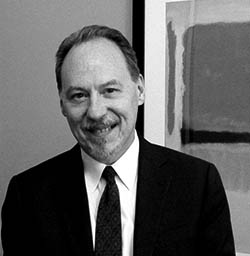
Integrative Harm Reduction – The New Frontier
ENSO Recovery is committed to the philosophy and practices of Harm Reduction and is pleased to provide you with the actual full length video presentation and the PowerPoint presentation from Andrew Tatarsky’s Integrative Harm Reduction Psychotherapy seminar hosted by The Choopers Foundation at the University of Southern Maine in March of 2017.
A One Day Workshop by Andrew Tatarsky, PhD Hosted by The Choopers Foundation
In the face of our national crisis of escalations in drug use and overdose, traditional abstinence-only treatments and our overemphasis on criminal justice interventions have failed to solve these problems. However, we are in the midst of a global paradigm shift in how we view and treat the spectrum of problematic substance use that holds great promise for developing more effective solutions. We are moving from moral, criminal and unitary disease models to viewing substance use as a health issue and human rights issue that varies on multiple psychobiosocial dimensions in ways that are unique to each person. This model shift implies the need for a personalized, collaborative integrative harm reduction approach to address the diverse needs of this large undertreated group of people.
Dr. Tatarsky will introduce Integrative Harm Reduction Psychotherapy (IHRP), his integration of harm reduction principles into psychotherapy and substance use treatment. IHRP brings together relational psychoanalytic, active cognitive and behavioral skills building and mindfulness techniques in a harm reduction frame to support positive change in substance use and related issues. He will discuss how IHRP has particular power to attract, engage and facilitate positive change in a group of people that has traditionally been thought to be hard if not impossible to treat in psychotherapy.
Outline of the Day:
- Introduce and define core harm reduction principles
- Discuss the clinical challenges of problematic substance use
- The limitations of the prevailing disease model-based abstinence-only treatment
- Describe the many paths to addiction and multiple paths to recovery
- Describe how the psychobiosocial process view of addiction the multiple meanings model and the Transtheoretical Stages of Change model best explain this complexity
- Present an overview of IHRP’s 7 therapeutic tasks with emphasis on therapeutic process and technique
- Demonstrate “urge-surfing” and discuss its applications to positive behavior change
- There will be time for discussing application to participants’ settings
Learning Objectives:
1. Participants will understand four core principles of harm reduction philosophy.
2. Participants with understand the psychobiosocial process model of addiction.
3. Participants will be able to identify four of the seven therapeutic tasks of Integrative Harm Reduction Psychotherapy.
4. Participants will learn “urge-surfing”, a technique for interrupting addictive urges and action to facilitate healing, growth and positive behavior change. This brings mindfulness and breath to the urge enabling pause, reflection on healthier alternatives and new behavior.
Dr. Tatarsky’s Bio
Andrew Tatarsky is an internationally recognized leader in the treatment of substance misuse and other potentially risky and addictive behaviors. He has specialized in the treatment of addiction for 35 years as a counselor, psychologist, program director, trainer, advocate and author. He has devoted his career to developing a comprehensive understanding of the broad spectrum of substance use problems and Integrative Harm Reduction Psychotherapy approach to treat this spectrum. This treatment is described in his book, Harm Reduction Psychotherapy: A New Treatment for Drug and Alcohol Problems, and several professional papers and book chapters that refine and extend the approach. The book has been released in paperback and Kindle, published in Poland and Spanish. The Spanish book is available as a free pdf. He has trained professionals and organizations in 14 countries. Dr. Tatarsky is Founder and Director of the Center for Optimal Living, where comprehensive treatment and professional training is offered based on Integrative Harm Reduction Therapy (IHRP). He earned his doctorate in clinical psychology from the City University of New York. He is Professor of Professional Practice in the Certificate Program in Harm Reduction Psychotherapy at the New School for Social Research, a member of the Medical and Clinical Advisory Boards of the New York State Office of Alcoholism and Substance Abuse Services, Founding board member and Past-President of the Division on Addiction of New York State Psychological Association.

